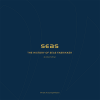A Short History of Cahiers du Cinéma
Unique account of cinema’s most influential journal
Cahiers du Cinéma was the single most influential project in the history of film. Founded in 1951, it was responsible for establishing film as the “seventh art,” equal to literature, painting or music, and it revolutionized film-making and writing. Its contributors would put their words into action: the likes of Godard, Truffaut, Rivette, Rohmer were to become some of the greatest directors of the age, their films part of the internationally celebrated Nouvelle Vague.
In this rich, authoritative new history, Emilie Bickerton explores the evolution and impact of Cahiers du Cinéma, from its early years, to its late-sixties radicalization, its internationalization, and its response to the television age of the seventies and eighties. Showing how the story of Cahiers continues to resonate with critics, practitioners and the film-going public, A Short History of Cahiers du Cinéma is a testimony to the extraordinary legacy and archive these “collected pages of a notebook” have provided for the world of cinema.
Praise for A Short History of Cahiers du Cinéma
“Bickerton has done a valuable and highly informative job.” — Philip French, Observer
“The French New Wave directors all came from Cahiers du Cinéma, a magazine that turned film criticism upside down in the 1950s. The salvoes of its sagacity are finely charted by Bickerton, who also laments the recent slide into dumbed-down mediocrity.” — Nigel Andrews, Financial Times Books of the Year
“What I love is Bickerton’s certainty and courage. She’s stepping here into the viperous pit of French intellectual life like a mongoose with a mission.” — Nick James, Sight & Sound
“A curt and combative volume … scintillating missive work.” — Time Out
Emilie Bickerton works for the news agency Agence France-Presse in Paris. She is on the editorial board of New Left Review and writes regularly on film, literature and anthropology for publications including the London Review of Books, Times Literary Supplement and The Guardian.
- Forlag: Verso
- Utgivelsesår: 2009
- Kategori: Film
- Lagerstatus: Ikke på lagerVarsle meg når denne kommer på lager
- Antall sider: 256
- ISBN: 9781844672325
- Innbinding: Innbundet











